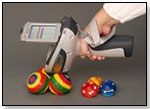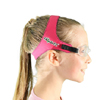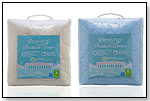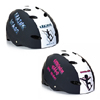|
|
NITON Has the Edge Thermo Fisher’s New Analyzer Leads the Pack in Lead Testing
TESTING FIRST “From the manufacturer’s point of view, the best time to test for toxic elements is at the raw-material stage, before time and energy [are] put into producing products,” said Ken Stehr, the company’s NITON Analyzers RoHS account manager. 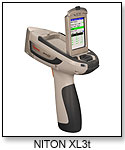 Thermo Fisher Scientific’s newest NITON analyzer, the NITON XL3t 700 Series XRF that debuted in April 2007, is a major asset in early detection. The portable, handheld device can detect lead, mercury and cadmium as well as other toxic materials in a variety of consumer goods through x-ray fluorescence. Thermo Fisher Scientific’s newest NITON analyzer, the NITON XL3t 700 Series XRF that debuted in April 2007, is a major asset in early detection. The portable, handheld device can detect lead, mercury and cadmium as well as other toxic materials in a variety of consumer goods through x-ray fluorescence.It forces each sample to emit an x-ray by releasing its own x-ray, causing a reshuffling of electrons. The instrument’s x-ray detector “sort[s] the various characteristic x-ray energies that it ‘sees,’” explained Stehr. “The energy of the x-ray detected tells us what element is present, and the number of these x-rays tells us how much of the particular element is present.” DETECTING LEAD IN SECONDS Using this technique, the NITON XL3t 700 Series XRF analyzer can detect a single microgram of lead on a toy’s surface area in seconds, far faster than sending suspect materials to laboratories for analysis. 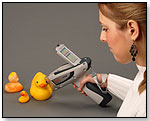 The analyzer is intuitive, meaning anyone can learn to use it in a matter of moments — users simply pull the orange trigger to begin testing — and the outcome is displayed on a VIP touch-screen. All test data read by the analyzer are encrypted and locked, so results cannot be tampered with. “The XL3t … is the only hand-portable instrument that utilizes a 50 KV x-ray tube as the fluorescing source,” Stehr added, noting that it can better detect such potentially dangerous elements as barium. “The 50 KV x-ray [also] has the added advantage of not being subject to the much stricter regulations that are found in many state and countries for instruments operating using radioactive isotope fluorescing sources.” 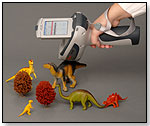 QUICKENING CONVENIENCE QUICKENING CONVENIENCEAnd since the analyzer can test through packaging, testing does not damage or affect products in any way; they can be further tested in laboratories for additional analysis, if necessary. The NITON XL3t 700 Series XRF analyzer is four times faster than the previous generation of NITON analyzers, and has already become the norm in screening metal alloys and electronics, according to Thermo Fisher. “Sales of the instrument have been very good,” says Stehr. “The United States Consumer Product Safety Commission has recently purchased multiple NITON instruments.” UPDATE Thermo Fisher Scientific continues to improve the NITON. In April 2008, they announced the release of a major software upgrade for its handheld XRF analyzers. The upgrades include TestAll Technology that automatically selects the correct analytical mode for consumer goods analysis; a simplified Chinese language option in addition to the current English, French, German, Spanish and Portuguese offerings, and many other features. These new capabilities are available at no extra charge for all NITON XL3 Series XRF Analyzers. Read more about the NITON.
|
|
Disclaimer Privacy Policy Career Opportunities
Use of this site constitutes acceptance of our Terms of Use.
© Copyright 2025 PlayZak®, a division of ToyDirectory.com®, Inc.

